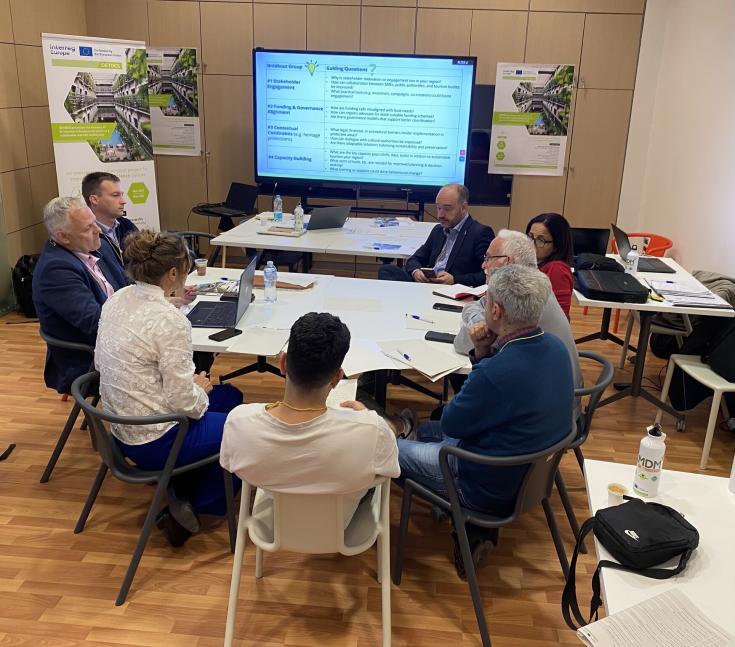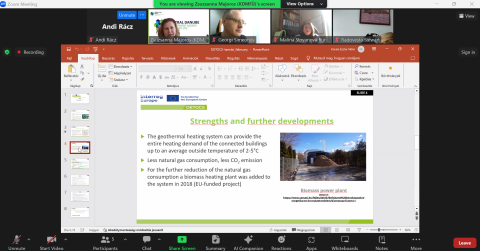Insights from the DETOCS Peer Review Sessions
As the tourism sector rebounds from the effects of COVID-19, the Interreg Europe DETOCS (DEcarbonising the TOurism Industry Post Covid-19 Support) project is taking steps to ensure that recovery is not only resilient but also climate-conscious. At the heart of this effort is an innovative peer review methodology, detailed in the recently published DETOCS Peer Review Sessions – Findings Report.
The DETOCS project, uniting partners from Slovenia, Greece, Malta, Finland, Italy, Bulgaria, Hungary, and the Netherlands, focuses on identifying and exchanging effective good practices (GPs) that reduce carbon emissions in tourism. These range renewable energy communities, sustainable accommodation models, digital visitor tools, and cleaner transport systems — all contributing to a climate-neutral Europe by 2050.
Why Peer Reviews Matter
Unlike conventional presentations or reports, peer reviews in DETOCS were designed as interactive, structured knowledge exchanges. Each session allowed interested project partners to review, question, and advise on another region’s good practice. Through coordination and support by the Lead and Advisory Partners, these reviews offered presenting partners an opportunity to refine their practices before formal submission to the Interreg Europe Good Practice database.
This approach has yielded a range of high-quality, thoroughly vetted solutions — and more importantly, fostered relationships and real conversations around what works, what doesn’t, and how solutions can be adapted across different regional contexts.
Each session provided nuanced, region-specific reflections, helping partners evaluate the transferability and impact of each initiative. And while all good practices were different, many shared common strengths: clear communication tools, accessible guidance, and long-term engagement strategies.
Lessons for the Future
The report outlines key themes that emerged across the peer review sessions:
-
Multi-stakeholder collaboration is essential. From Crete to Malta, successful initiatives were those that actively involved both public and private sector actors.
-
Practicality matters. Straightforward tools like “40 Effective Energy Tips” from Middelburg were praised for their accessibility, especially for small businesses.
-
Digital innovation has real potential, but user-friendliness is critical for uptake.
-
Funding and infrastructure remain universal challenges. Even the most promising ideas need financial support and logistical planning to scale effectively.
-
Ongoing engagement is key. One-off projects risk fading without systems for continuous support, training, and follow-up.
Building a Greener Tourism Future
The peer review process in DETOCS was more than a quality check — it was a strategic investment in shared learning and scalable innovation. By embracing critical dialogue and cross-regional insight, DETOCS partners are laying the groundwork for sustainable tourism policies that can work across Europe’s diverse regional landscapes.
Ready to dive deeper?
➡️ Read the full DETOCS Peer Review Sessions – Findings Report here to explore the good practices and learn how peer feedback is shaping the future of decarbonised tourism.


